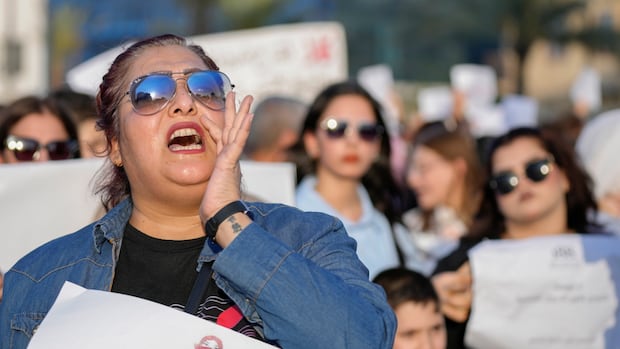
Critics say new bill passed by Iraqi lawmakers opens door to child marriage
Iraq's parliament passed three divisive laws on Tuesday, including changes to the country's personal status law that opponents say effectively legalize child marriage.
The changes give Islamic courts greater powers in family matters, including marriage, divorce and inheritance, which activists say undermines Iraq's 1959 Personal Status Law, which unified family law and established guarantees for women.
Currently, Iraqi law sets 18 as the minimum age for marriage in most cases.
The changes passed on Tuesday would allow clerics to rule according to their own interpretation of Islamic law, which some interpret as allowing girls to marry as early as teenage years or as young as nine, under the Jafari school of Islamic law followed by many Iraqi Shiite religious authorities.
Supporters of the changes, which were backed by mostly conservative Shiite lawmakers, defend them as a way to bring the law into line with Islamic principles and reduce Western influence on Iraqi culture.

The parliament also passed a general amnesty law, which is seen as a benefit to Sunni detainees and is also seen as a concession to those involved in corruption and embezzlement.
“Disastrous effect” on the rights of women and girls. activist
Intisar al-Mayali, a human rights activist and member of the Iraqi Women's League, said the adoption of the civil status changes would have “disastrous consequences for the rights of women and girls through early marriage, which violates their right to live as children and undermines divorce.” , mechanisms of guardianship and protection of women's inheritance”.
The session ended in chaos and accusations of procedural violations.
“Half of the lawmakers present did not vote, which violated the legal quorum,” said a parliamentary official, speaking on condition of anonymity because he was not authorized to comment publicly.
After the session, a number of lawmakers complained about the voting process, according to which all three controversial laws, each of which was supported by different blocs, were voted together.
“Regarding the civil status law, we strongly support it and there have been no problems with it,” said independent MP Raed al-Maliki.
Changes may result in legal appeal
“But it was combined with other laws that have to be voted on together … and that could lead to a legal challenge in Federal Court.”
In his statement, Speaker of the Parliament Mahmoud al-Mashadani praised the adoption of the laws as “an important step in the process of strengthening justice and organizing the daily life of citizens.”
Also on Tuesday, at least three officers, including the head of national security in the al-Tarmiya district north of Baghdad, were killed and four others wounded in an explosion at an ammunition depot, a security official said.
The official, who spoke on condition of anonymity because he was not authorized to brief the media, said the explosion occurred as joint forces of the Iraqi army and the National Security Service carried out an operation following the activities and intelligence of the Islamic State group. Ammunition warehouse in the area.
